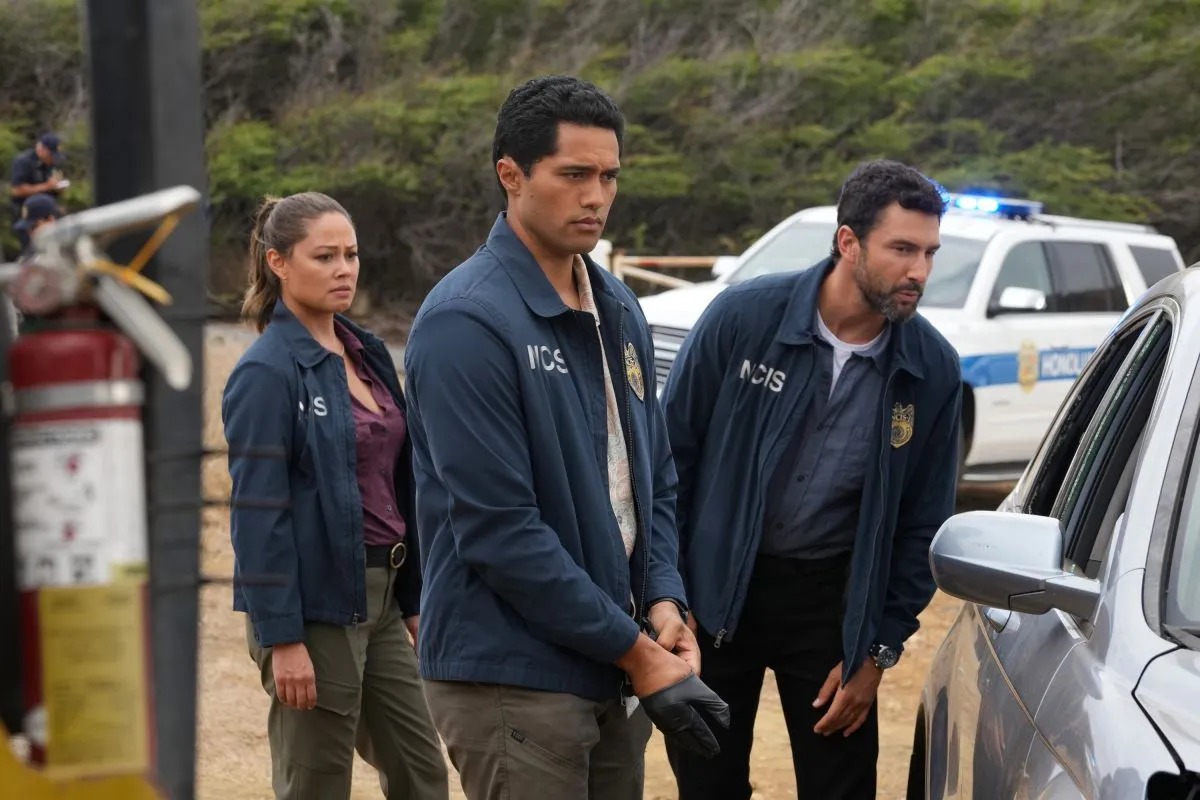
Given that the third-season finale episode of NCIS: Hawai’i wasn’t at all intended to be the series finale, which the show’s cast and crew envisioned for the end of an abbreviated fourth season, the series’s end leaves several unresolved character and plot developments. The most significant story arc left forever unresolved by the show’s cancelation involves series lead Jane Tennant’s mother, who abandoned Jane when Jane was a child. The series instead ends with a two-part season finale in which Jane and her team, including NCIS: Los Angeles alumnus Sam Hanna, played by LL Cool J, attempt to track down a deadly biological weapon called Compound X.
Prior to the cancelation announcement, the show’s producers had intense discussions with CBS regarding the possibility of a 13-episode fourth season. Following the cancelation, the only way for NCIS: Hawai’i to achieve finality through a proper series finale is for CBS to either reverse its cancelation decision, as the network did with S.W.A.T., or give the show a fourth and final season on the Paramount+ streaming service. However, CBS has rejected either of these possibilities.
Indeed, the fact that NCIS: Hawai’i consistently generated stronger ratings than several renewed CBS shows, such as FBI: International, FBI: Wanted, and S.W.A.T., indicates that the cancelation of NCIS: Hawai’i is primarily attributable to cost, for which the expense of filming a series on location in Hawaii is prohibitive regardless of steep budget cuts, and the fact that CBS has three other shows in the franchise attached to its prime-time schedule for next season. Let’s get real — TV shows come and go, but some deserve a curtain call, not just a fade to black. NCIS: Hawai’i didn’t just end; it vanished. No build-up, no satisfying conclusion, no goodbye. Fans were left with a bitter taste, and honestly, who can blame them?
What Made NCIS: Hawai’i Special in the First Place?
A Fresh Take on a Trusted Franchise
NCIS has been a television titan for decades. So when NCIS: Hawai’i launched in 2021, it felt like a breath of ocean-fresh air. New setting, new faces, new stories — all backed by a name fans already loved.
A Strong Female Lead That Broke the Mold
Jane Tennant, played by Vanessa Lachey, wasn’t just another agent. She was a single mom, a kickass leader, and a human being with real struggles. Representation matters, and she brought something new to the table.
From native Hawaiian traditions to showcasing local talent, this series embraced its roots. It didn’t just take place in Hawai’i — it felt like Hawai’i.
The Abrupt Cancellation — What Happened?
Ratings Were Steady, So Why The Axe?
The ratings weren’t breaking records, sure, but they weren’t a disaster either. In fact, NCIS: Hawai’i often outperformed other CBS dramas. So, what gives?
Corporate Decisions That Left Viewers Out
It’s no secret the entertainment industry is full of cutthroat business calls. Budget cuts, shifting priorities, or exec reshuffles could be to blame — but why punish the loyal fanbase?
No Finale, No Closure — The Worst Kind of Goodbye
Unresolved Storylines That Still Sting
Remember the brewing romance between Tennant and Captain Milius? Or the tension surrounding Jesse’s future? Yeah, we’ll never know how that plays out now.
Viewers Left in the Dark
There wasn’t a “farewell” episode. No emotional goodbye. No last mission. Just a regular episode… and then silence. That’s how NCIS: Hawai’i ended — like a phone call cut off mid-conversation.
Why This Hurts Fans So Deeply
We Invest Emotionally in Characters
Let’s be honest — watching a show like NCIS: Hawai’i isn’t just entertainment. It’s an emotional investment. When it ends without closure, it feels like getting ghosted by a best friend.
The Impact of Sudden Cancellations on Fan Loyalty
Why stick around for a new CBS show if the network might pull the plug without warning? Loyalty is a two-way street, and this felt like betrayal.
What CBS Should Have Done Differently
Communicate With The Fans
At the very least, CBS could’ve announced a planned finale or acknowledged the ending publicly. But instead? Crickets. That’s not how you treat a loyal audience.
A TV Movie or Mini-Series Could’ve Saved It
Even a 90-minute wrap-up special could’ve provided closure. Fans would’ve tuned in. They wanted it. They deserved it.
The Power of Closure in Television
Other Shows That Got It Right
Remember how Breaking Bad wrapped things up? Or Friends? They left viewers satisfied, nostalgic, and grateful. That’s the goal. NCIS: Hawai’i missed that mark by a mile.
Closure Creates Legacy
Without closure, the legacy of NCIS: Hawai’i becomes “that show that just disappeared.” That’s not fair to the cast, the crew, or the fans.
The Fanbase Isn’t Staying Quiet — And That’s a Good Thing
Hashtags, Petitions, and Fan Outrage
#SaveNCISHawaii trended. Petitions circulated. Viewers weren’t ready to let go — and they made that very clear.
The Community That’s Still Growing
Fan forums, Reddit threads, and Facebook groups continue to buzz. People are writing fan fiction, sharing theories, and keeping the flame alive.
Will There Be a Revival or Spin-Off?
Don’t Rule It Out Just Yet
In the TV world, nothing is ever really dead. Firefly fans got a movie. Veronica Mars came back years later. Stranger things have happened.

What Would a Proper Ending Look Like?
Maybe a two-hour special. Maybe a crossover episode with NCIS or NCIS: LA. Or maybe a streaming service picks it up. Fans have ideas — and they’re not shy about sharing them.
Conclusion: NCIS: Hawai’i Didn’t Just End — It Was Erased
TV shows should leave a footprint, not vanish like footprints in the sand. NCIS: Hawai’i was vibrant, inclusive, and full of potential. But it was shut down mid-sentence. That hurts — not just because it’s gone, but because of how it went. Viewers deserved closure, and the cast deserved to go out with a bang, not a whisper.